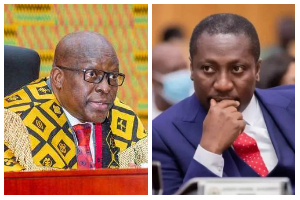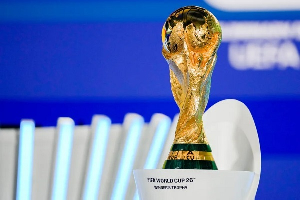One of the important concepts in the world’s child protection movement is the principle of “the best interest of a child.”
This principle suggests that in any policy, law, or decision that concerns a child directly or indirectly, top priority should be given to the political, economic, and social interests of the child.
In 1924, this principle was first espoused in the Geneva Declaration on the Rights of the Child. It has since been the key foundation for many treaties and charters that promote the well-being of children. This includes the UN Convention on the Rights of the Child (UNCRC) of 1989, which Ghana was actually the first country in the world to ratify, and the African Charter on the Rights and Welfare of the Child (ACRWC) of 1990.
Post-WW1:
During World War I and even after the war, children were handled anyhow, necessitating the declaration in 1924 to protect them from being enlisted to engage in slavery, child labour, child trafficking, and prostitution. While the 1924 Geneva Declaration advocated the provision of the child’s needs for formal development, it was in 1959 that the UN Declaration on the rights of the child deemed it fit to add on the issue of special safeguards and care of the child, including legal protection before and after birth because of the physical and mental immaturity of the child.
Article 2 of the UN Declaration on the Rights of a Child states that “the child shall enjoy special protection and shall be given opportunities and facilities, by law and by other means, to enable him to develop physically, mentally, morally, spiritually, and socially in a healthy and normal manner and under conditions of freedom and dignity. In the enactment of laws for this purpose, the best interest of the child shall be the paramount consideration” (not one among several others).
Article 7 also adds on by further stating that “the best interests of the child shall be the guiding principle of those responsible for the child’s education and guidance.”
In Ghana, the Children’s Act of 1988 (Act 560), amended by the Labour Act 2003 (Act 651), also explicitly defines what is appropriate for a child and what is considered a violation of the child’s freedom and dignity.
Article 28(1) of the 1992 Constitution of Ghana also mentions the provisions for the best interests of the child.
The best interest of the child is usually interpreted in relation to the other provisions made for the child’s welfare and well-being. In some cultures in Africa, there have been clashes between these legal instruments and the traditions of upbringing, including certain roles for children. Child protection professionals and scholars suggest that traditional patterns may only be applied so long as they conform to all the other rights.
Protection:
The African Charter therefore sought to give special protection to the African child, bearing in mind the intricacies of African cultures. This charter adopts a slightly higher standard than all the others, requiring that the child’s interests be given primary consideration.
In Ghana, there are many actions and inactions by those who care for and guide children that amount to child abuse. Failure to report to Social Welfare the relatively harsher and destitute conditions under which some mothers and caregivers live with their children is an inaction that hampers the development of the children in that situation.
Customs and traditions that prevent menstruating children from crossing rivers to school, for instance, or that seek to offer virgin children to gods for servitude, religious payment, or atonement for the alleged misconduct of an adult are all issues that must be seriously re-considered. The primary interest of the child must be upheld by all stakeholders, and other convenient alternatives must be offered.
Opinions of Wednesday, 10 April 2024
Columnist: Dr. Nana Esi Gaisie-Tetteh















